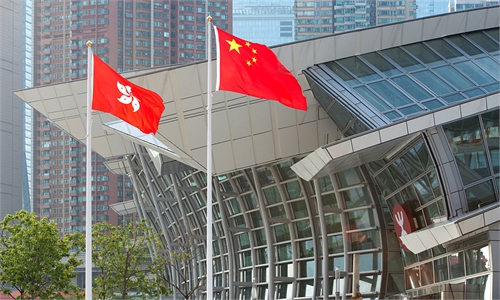
RCEP Photo: VCG
China will speed up free trade negotiations with other economies and blocs following the signing of the Regional Comprehensive Economic Partnership RCEP, Chinese Commerce Minister Zhong Shan has said.
In an article published in the People's Daily on Tuesday, Zhong wrote that China should take the opportunity created by RECP to accelerate the negotiation of the China-Cambodia Free Trade Agreement (FTA), China-EU bilateral investment treaty, China-Japan-South Korea FTA, China-GCC FTA, China-Norway FTA, and China-Israel FTA, as well as further upgrading existing free trade agreements with ASEAN, Singapore, South Korea and New Zealand.
Zhong said that the signing of the RCEP at a time when the world is undergoing major changes such as COVID-19, a global economic recession and rising instability has had a profound impact on the decision to promote a new round of opening up to enhance global economic recovery and maintain a multilateral trading system.
After the signing of RCEP, China signed a told of 19 FTAs with 26 different countries and economic blocks, and increased its trade volume with its free trade partners from 27 percent to 35 percent.
Zhong noted that the signing of RCEP will help promote high-quality development in the Belt and Road Initiative, greatly improve opening up, promote the construction of an open world economy and build a community with a shared future for mankind.
Several RCEP members have formed important economic and trade partnerships with China. In 2019, China's total trade with 14 RCEP member states accounted for about one third of China's total foreign trade while investment from the members accounted for more than 10 percent of China's total foreign investment.
According to estimates by international think tanks, as of 2030, RCEP is expected to drive a net increase of $519 billion in exports and $186 billion in national income for its members each year.
Zhong said that the founding of RCEP has helped to establish a higher level of cooperation in terms of customs procedures and trade facilitation, intellectual property protection, e-commerce, competition, government procurement and SMEs, and that China can use the experience to engage in dialogue and communication with more major international economies on regional trade arrangements.
Global Times

